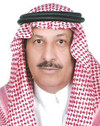Why don’t we speak for ourselves?

About two years ago, I wrote an article in Arab News titled “Why Arabs fail to influence Americans?” A couple of days later, I received many e-mails asking me if I knew John Duke Anthony. To this day I never knew why I was asked this question. But when I looked him up on the Internet and the Saudi-US relations Information Service (SUSRIS) website and started to follow his work and his writings. Ironically, many people in the Arab world don’t know the amount of positive contributions he has made to improve the American knowledge and understanding of the Arab world.
Few weeks ago, I was surprised to see an invitation sent to my e-mail account, requesting me to attend a forum in Rayburn House Office Building in Washington D.C. on May 21 organized by the National Council on US-Arab Relations (NCUSAR). I saw the list of the speakers and the name of the moderator who happened to be John Duke Anthony. I was in Saudi Arabia but I sent the required (RSVP), accepting the invitation. I planned to be in the D.C. area during the time of the forum and was looking forward to hear what would be said about the Arab world, but the main reason for my presence in Washington D.C. was to attend the Saudi job fair and graduation ceremony being held in the State of Maryland and organized by the Saudi cultural mission in the United States.
I arrived in Washington D.C. on May 20 and one day later I headed to where the forum was taking place. The title of the forum was “Bahrain: A Conversation About Its Challenges and Opportunities.”
On May 21 morning, I headed to the Rayburn Building. The speakers came from different backgrounds. One of them was the director of the Human Rights Watch (MENA), Sarah Leah Whitson. The other speaker was a professor of economics at the National Defense University. The third speaker was a senior military fellow, Professor David Des Roches. And the last one was the president of the American Academy of Diplomacy, Ambassador Ronald Neumann.
At the forum, I was impressed by John Duke Anthony. His way of putting historic events in perspective and his extensive knowledge about the history of the Gulf region were amazing. He was an excellent moderator who can explain events in a very simple way.
During the forum, I read the speakers’ brief backgrounds in the event schedule. And when the speakers finished, I recalled many articles that I have written in Arab News over the last few years. The points discussed in the forum were similar to the ones I highlighted in my articles — “HRW and Dubai’s Lamborghini,” “Syria, where are the Americans?,” “Why Arabs fail to influence the Americans?,” “The GCC states: Between democracy and prosperity” and many such articles.
The forum was very educational, but one thing I could not fathom that why the talk was about the Kingdom of Bahrain with rare mentions of the other Gulf and Arab states, but all the speakers are Americans. I wondered that why there was no one from the Gulf states or the Arab world in general. I was not clear whether people from the Arab world are invited or they are invited but do not accept the invitations. I passed my query to Anthony in a small piece of paper. He answered it briefly, but I already guessed the answer about the absence of Arab speakers and again I remembered my article in Arab News titled “Why Arabs fail to influence the Americans?”
The answer is because we don’t like to talk to the outside world and we let the others talk on our behalf. And if it wasn’t for people like John Duke Anthony, there will be no National Council on US-Arab Relations (NCUSAR).
NCUSAR was established in the 1980s and many people in the Arab world still don’t know about it or even haven’t heard of it. From the day it was established it helped enhance the American awareness about US-Arab issues in every field and not only politics. But, isn’t it important for Arab scholars, historians, politicians and economists to talk directly to America and the American public?
The NSUSAR has done many things to bring about more positive understanding between the American public and the Arabs in many fields, but most of it is done through indirect talks. And this had been going on for a very long time. Arab countries have the assets and the intellectuals who have the ability to open up not just to America, but also to the whole world.
We saw many books and many media reports that talked about the Arab world, but the Westerners do most of the works and very seldom we see a constructive writing from an Arab. And if we see an analysis from an Arab writer or if we hear a lecture from an Arab historian, then it is very easy to predict what he or she would say. The Arabs are very media shy and always follow specific lines.
Yes, I enjoyed the forum and learned a great deal from the speakers, but the question again is why whatever the American speakers said did not come from an Arab expert? The Arab world is never present in the media, not because the West doesn’t want us to be there or doesn’t want to listen to us, it is just we are never there. We see many anti-American media reports in the Arab world, but when the going gets tough, then we listen to the American media and ask for their opinion or want them to write something positive about it. This is why the Arabs never won a media war. We don’t talk to the world, the world is talking on our behalf and if we don’t like what they say, then we don’t blame ourselves, we blame the others.
Email: [email protected]










































